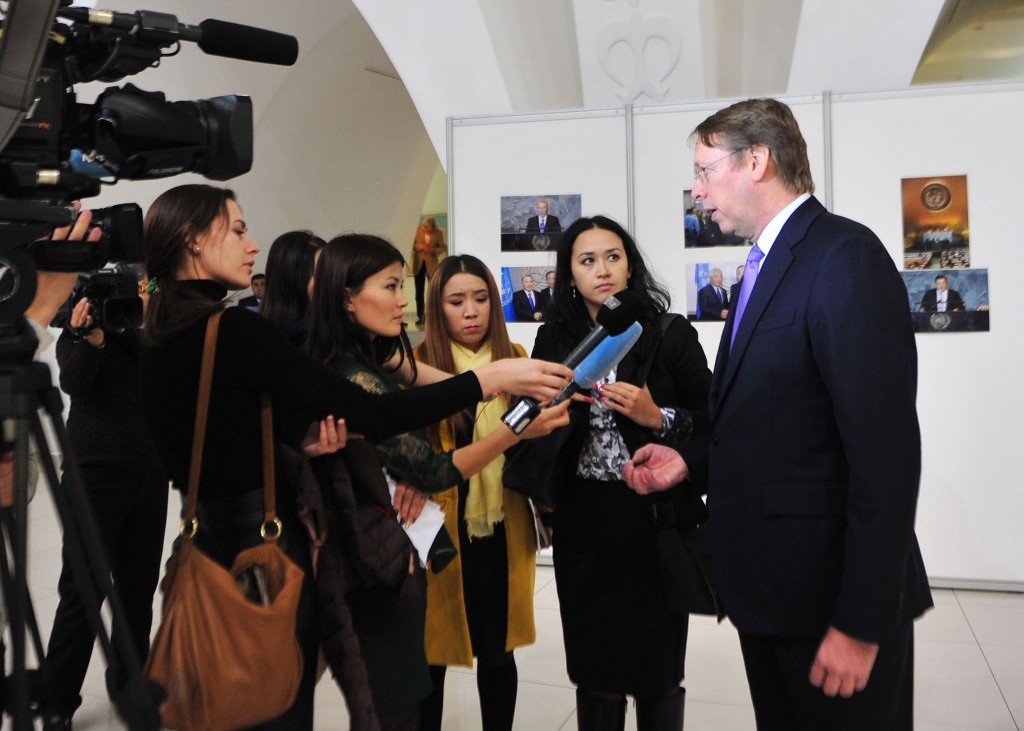ASTANA – A range of international activities and events were organised Oct. 24 to commemorate the 70th anniversary of the United Nations. More than 200 landmarks in 60 countries, including the Great Wall of China, the Pyramids in Egypt, the Eiffel Tower in Paris and the Empire State Building in New York, were lit in the organisation’s official colour to “Turn the World UN Blue.” Astana and Almaty joined in the global action.
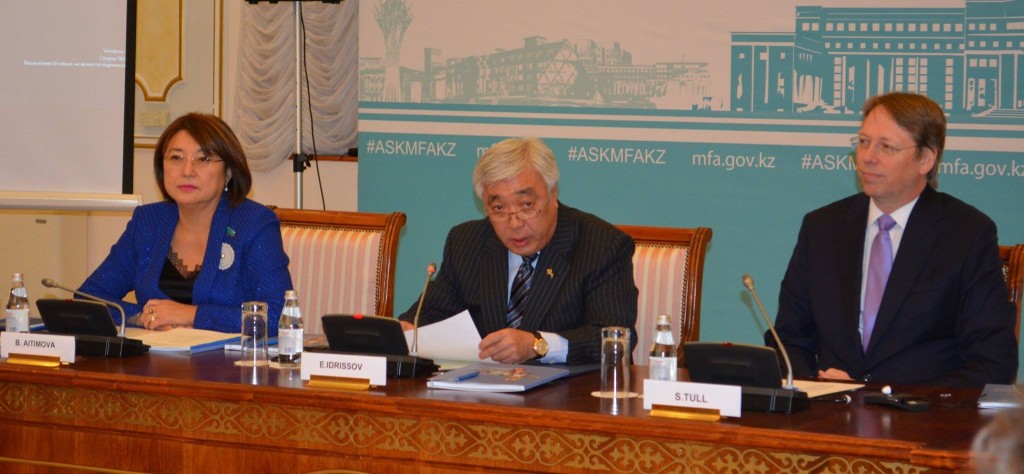 In advance of the jubilee, the Kazakh Ministry of Foreign Affairs held an Oct. 22 roundtable discussion dedicated to the UN’s achievements.
In advance of the jubilee, the Kazakh Ministry of Foreign Affairs held an Oct. 22 roundtable discussion dedicated to the UN’s achievements.
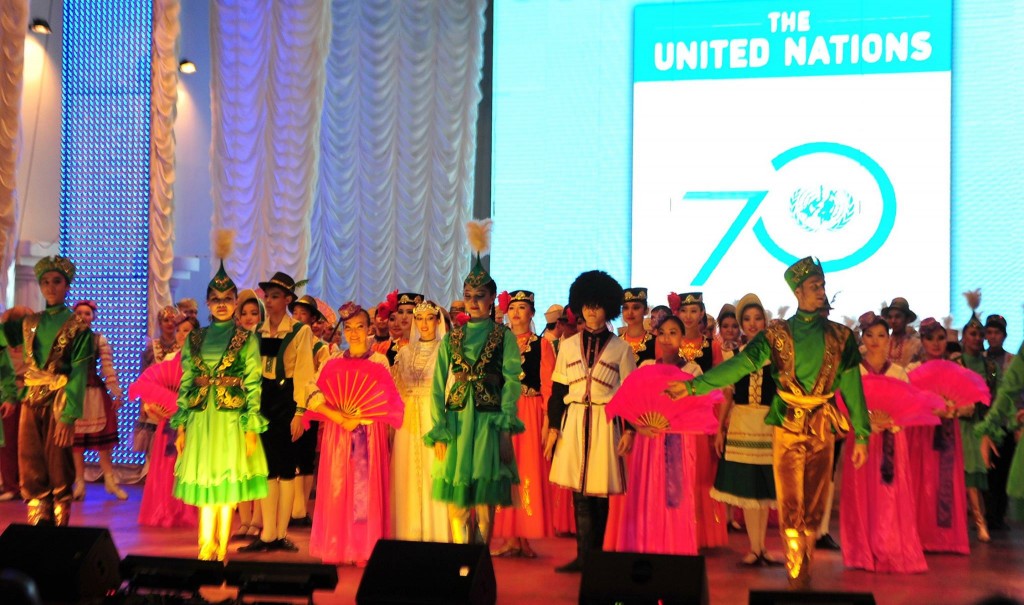 “The establishment of the United Nations 70 years ago was an historic and symbolic event. As a fundamental element of the modern world order, the organisation through its principles expresses the hopes of the people of the world,” said Foreign Minister of Kazakhstan Erlan Idrissov to open the meeting.
“The establishment of the United Nations 70 years ago was an historic and symbolic event. As a fundamental element of the modern world order, the organisation through its principles expresses the hopes of the people of the world,” said Foreign Minister of Kazakhstan Erlan Idrissov to open the meeting.
UN Resident Coordinator in Kazakhstan Stephen Tull, who ended his mission in the country the week of the anniversary celebration, recalled the history of the UN, its mission and its goals in his speech at the event.
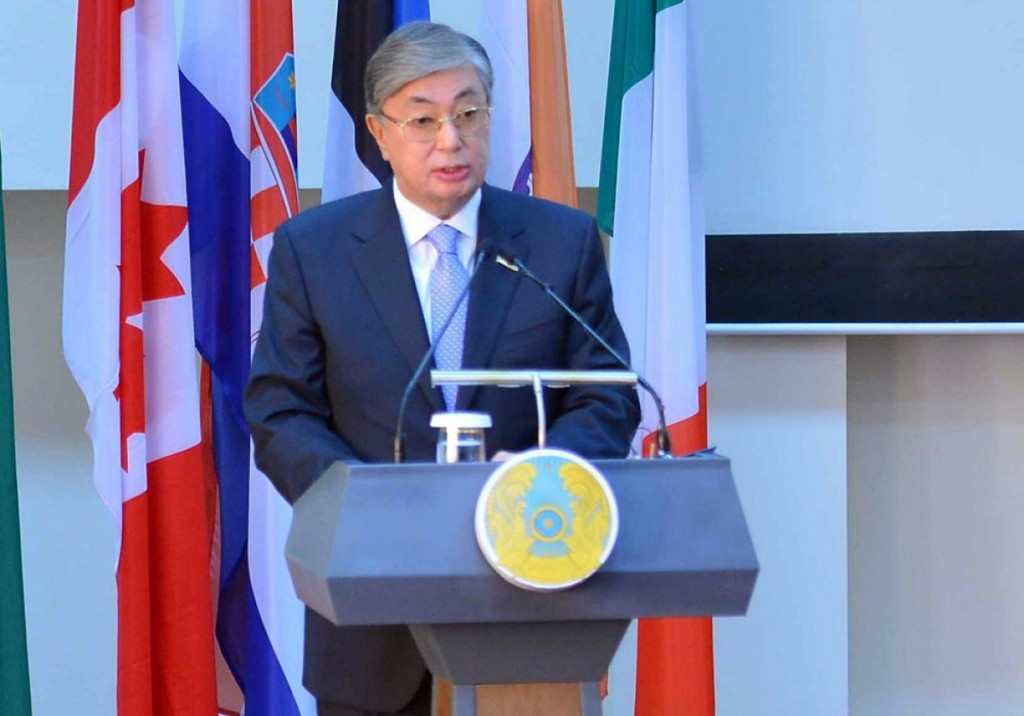 “Kazakhstan is embarking on a massive domestic reforms programme in five important areas and the nation is continually re-affirming its commitment to the UN Charter and the principles of international law. Kazakhstan is giving full support to and also joining other member states in looking at a series of options for funding implementation of the 2030 sustainable development agenda. Kazakhstan is even planning ahead for the world of 2045, the 100th anniversary of the UN,” he said.
“Kazakhstan is embarking on a massive domestic reforms programme in five important areas and the nation is continually re-affirming its commitment to the UN Charter and the principles of international law. Kazakhstan is giving full support to and also joining other member states in looking at a series of options for funding implementation of the 2030 sustainable development agenda. Kazakhstan is even planning ahead for the world of 2045, the 100th anniversary of the UN,” he said.
The UN official was referring to Kazakh President Nursultan Nazarbayev’s recent proposal announced at the UN General Assembly’s opening debate to elaborate a 2045 Global Strategic Initiative Plan for the organisation, the core idea of which is “to launch a new trend in global development based on fair conditions” that would secure nations’ equal access to international infrastructure, resources and markets and also “maintain comprehensive accountability for human development.”
The roundtable continued with a reception on behalf of the Kazakh Ministry of Foreign Affairs and was followed by a concert by music students from the Kazakh National University of Arts.
Speaking at the reception, Idrissov highlighted that Kazakhstan has been cooperating with the UN for 23 years and that in that period the country has achieved much and has made significant strides in its development. As an example, Idrissov noted Kazakhstan’s successes in poverty reduction, noting that these were achieved in cooperation with partner countries and the UN.
“In the 23 years of independence, Kazakhstan has accomplished a lot and made great strides in our development. We have cut poverty to a level from above 40 percent to less than 5 [percent]. This is a colossal achievement. We are one of the few states that have almost fully solved the task of implementing the [UN-designated] Millennium Development Goals in areas of economy, social development, healthcare, life expectancy and so on. Those are our achievements and we take pride in them. But we would not have achieved that without partnerships with other countries of the world, with the United Nations. That is why we celebrate our close cooperation with the UN today,” the minister said.
Along with the roundtable at the Foreign Ministry, an international conference “The United Nations and UNESCO: 70 Years of Positive Growth” was organised at Lev Gumilev Eurasian National University in Astana Oct. 26. Chairman of the Senate of Kazakhstan Kassym-Jomart Tokayev spoke at the opening of the conference, stressing the uniqueness of the UN and saying it deals with important problems of all humanity and develops consistent approaches to their solutions on the basis of peace and security.
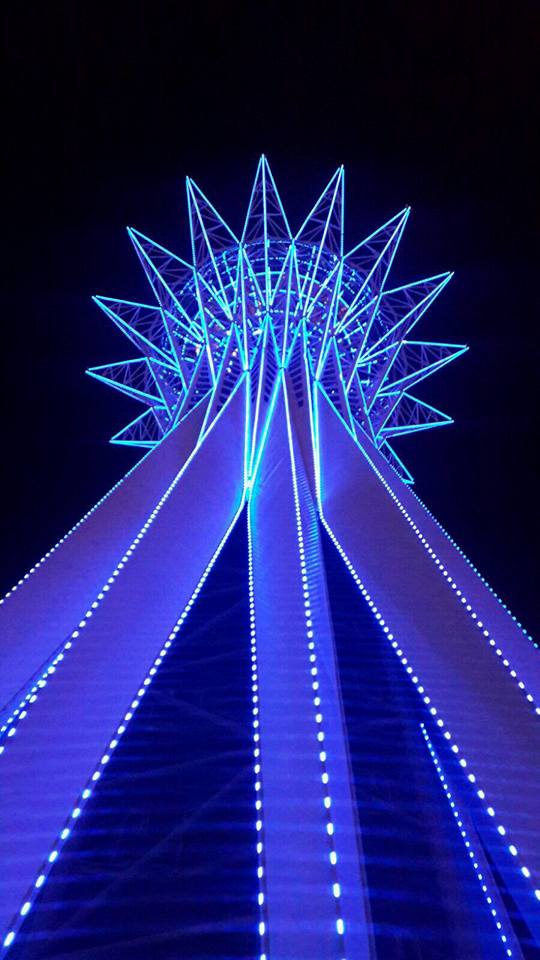 Sharing a bit of his experience as Deputy Secretary-General of the UN, Director General of the UN Office at Geneva and Secretary-General of the Conference on Disarmament in 2011-2013, Tokayev emphasised that only under the auspices of the UN is the international community able to develop effective and collective responses to global challenges.
Sharing a bit of his experience as Deputy Secretary-General of the UN, Director General of the UN Office at Geneva and Secretary-General of the Conference on Disarmament in 2011-2013, Tokayev emphasised that only under the auspices of the UN is the international community able to develop effective and collective responses to global challenges.
“It’s in our common interest to keep working on strengthening the UN as a global heritage that we must cherish,” he said.
Tokayev also stressed the peacekeeping role of the UN. He said 69 peacekeeping operations were authorised globally, involving more than 1 million troops. UN staff delivers food to 90 million people in 80 countries and assist 40 million refugees, he said, adding that many have sacrificed their lives during the execution of these missions.
“The world is facing new threats. First, there is international terrorism. According to the most recent data, Daish (IS) alone has about 200,000 combatants. Annually, 235 million people or 5 percent of the world’s population from 15 to 64 years old have also tried or continue using narcotics. The UN estimates that currently more than 750 million people do not have access to clean drinking water. As a result of water shortages, there have been 37 interstate conflicts in the last 50 years. In 2014, the number of refugees reached 60 million. The total number of migrants has exceeded 230 million,” he said.
Tokayev continued: “The UN is us, the international community, the nations. And without our common efforts, no problem will ever be solved. It requires modernisation of the United Nations in light of the realities of the world. The organisation must be ready to face new global threats.”
President of the Nevada-Semey international antinuclear movement and prominent Kazakh poet and diplomat Olzhas Suleimenov summarised the need for the modernisation of the United Nations mentioned by Tokayev.
“To keep peace, it is necessary to improve education. Only educated people can save themselves. The Third World War is already on the doorstep, and the UN is trying to prevent this threat as much as it can. And to do this we need to make our children understand why people still kill each other,” he said.
On the day of the anniversary, Astana and Almaty joined the global campaign designed to unite citizens of the world and promote the message of peace, development and human rights. The Baiterek Tower in Astana and the Palace of the Republic and Hotel Kazakhstan in Almaty, a local landmark that for almost two decades was the tallest building in the country, were highlighted in the UN’s signature colour. The citizens of both cities could also participate in flashmobs dedicated to UN Day.
In his anniversary message, UN Secretary-General Ban Ki-moon expressed the hope that “by turning the world UN blue for a day, we can light a way to a better tomorrow.”

